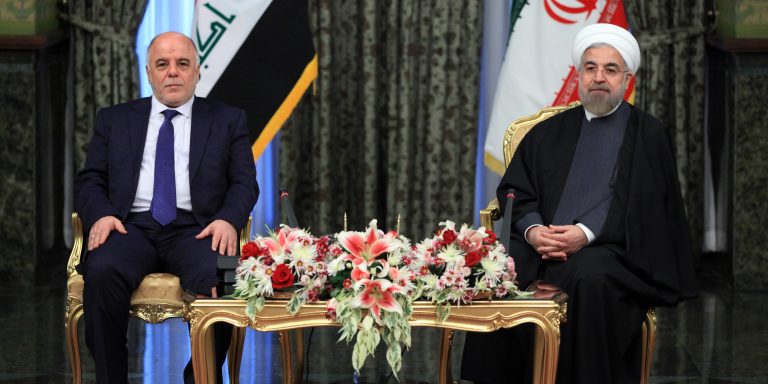INTELBRIEF
September 25, 2018
IntelBrief: Iran-US Tensions Escalate in Iraq

- Iraq continues to be an important frontier in the growing conflict between Iran and the Trump Administration.
- Recent Iranian actions and U.S. threats, set the stage for potential escalation as President Donald Trump prepares to chair a September 26 U.N. Security Council meeting that he has said will focus primarily on Iran’s regional destabilizing activities.
- Iranian weapons shipments and actions by its proxies in Iraq increase the potential for tensions between Tehran and Washington.
- Iran’s provision of short-range ballistic missiles to its Shia militia allies provides the mullahs with a growing ability to project power against U.S. interests throughout the Middle East.
- The strength of Iran’s proxies in Iraq will enable Tehran to exert influence in the country even if the Baghdad government remains aligned with the United States.
.
The potential for U.S.-Iran competition to flare into outright hostilities increased significantly this month. It was reported in early September that Iran had supplied short-range ballistic missiles to Kata’ib Hezbollah, enabling Iran to project power through its proxies against regional nemesis Saudi Arabia, as well as U.S. forces in eastern Syria if necessary. And, in mid-September, in actions reminiscent of the 2003-2011 period, Iran-backed Shia militias launched rockets apparently targeting U.S. diplomatic facilities in Baghdad and Basra—actions that the State Department blamed specifically on Iran. The weapons deliveries and militia actions were likely an effort by Tehran to demonstrate it can counter the Trump administration’s campaign of broad economic, political, and military pressure. However, the actions prompted strong warnings by Secretary of State Michael Pompeo that the United States might act militarily against Iran for such provocative actions, and not necessarily only against the local proxies.
Iraq is emerging as a potential flashpoint in the broadening conflict between the United States and Iran, especially as the latter has undertaken increasingly bold steps to use its Arab neighbor as an instrument to counter U.S strategy in the region. U.S.-Iran competition in Iraq has been a hallmark of the relationship between the two countries since the American intervention in Iraq in 2003. That intervention led to a multi-year occupation and poorly-planned stabilization efforts. One major unintended consequence was the accession to power of pro-Iranian Shia parties.
The so-called Islamic State’s capture of substantial portions of Iraqi territory in 2014 led Iran to send arms, military advisors, and funds to the beleaguered Baghdad government. Iran sent about 1,000 of its elite Islamic Revolutionary Guard Corps – Qods Force (IRGC-QF) to help Iraq fend off the Islamic State challenge, and quintupled its military aid to Iraq to about $1 billion. Much of Tehran’s efforts were devoted to expanding and training several pro-Iranian Shia militias, including the Badr Organization, Kata’ib Hezbollah (Hezbollah Brigades), and Asa’ib Ahl al Haq (League of the Family of the Righteous)—factions that Iran had long supported against Saddam Hussein’s regime and against U.S. forces in Iraq. The collapse of the caliphate will benefit Iran, which is likely to tout its assistance to Iraq and remind the leadership of just how valuable Iranian training and equipment was to Baghdad’s victory over IS.
But the years of strengthening militia groups is now leading directly to other issues. The militias not only have since resisted government efforts to fold into the national security structure, but their commanders and political allies also prospered in the May 2018 national elections. The political clout of these militias ensures that Iran will have significant influence in Iraq even if Prime Minister Hayder al-Abadi, whose faction underperformed in the May elections, is returned to his post when a new government is eventually finalized. The Trump administration is exerting extensive pressure on Iraqi politicians to retain Abadi as Prime Minister, to serve as a counterweight to Iranian and Iran-backed militia influence, but also to protect U.S. interests in a country that 4,500 U.S. military personnel died trying to stabilize.
.
For tailored research and analysis, please contact: info@thesoufancenter.org
[video width="960" height="540" mp4="https://thesoufancenter.org/wp-content/uploads/2018/09/IB-0925.mp4" poster="https://thesoufancenter.org/wp-content/uploads/2018/09/AP_287751263423.jpg"][/video]